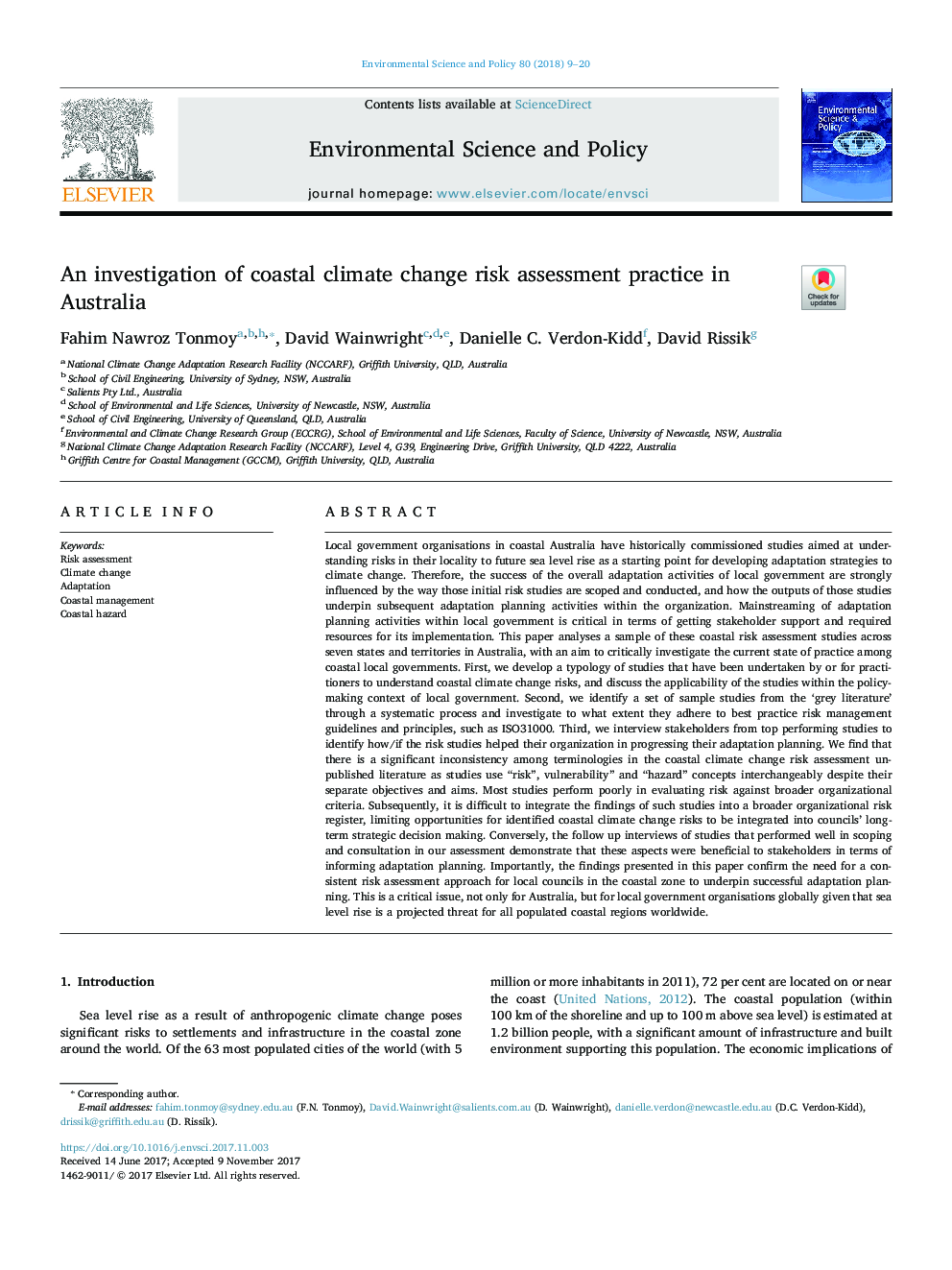| Article ID | Journal | Published Year | Pages | File Type |
|---|---|---|---|---|
| 7466256 | Environmental Science & Policy | 2018 | 12 Pages |
Abstract
Local government organisations in coastal Australia have historically commissioned studies aimed at understanding risks in their locality to future sea level rise as a starting point for developing adaptation strategies to climate change. Therefore, the success of the overall adaptation activities of local government are strongly influenced by the way those initial risk studies are scoped and conducted, and how the outputs of those studies underpin subsequent adaptation planning activities within the organization. Mainstreaming of adaptation planning activities within local government is critical in terms of getting stakeholder support and required resources for its implementation. This paper analyses a sample of these coastal risk assessment studies across seven states and territories in Australia, with an aim to critically investigate the current state of practice among coastal local governments. First, we develop a typology of studies that have been undertaken by or for practitioners to understand coastal climate change risks, and discuss the applicability of the studies within the policy-making context of local government. Second, we identify a set of sample studies from the 'grey literature' through a systematic process and investigate to what extent they adhere to best practice risk management guidelines and principles, such as ISO31000. Third, we interview stakeholders from top performing studies to identify how/if the risk studies helped their organization in progressing their adaptation planning. We find that there is a significant inconsistency among terminologies in the coastal climate change risk assessment unpublished literature as studies use “risk”, vulnerability” and “hazard” concepts interchangeably despite their separate objectives and aims. Most studies perform poorly in evaluating risk against broader organizational criteria. Subsequently, it is difficult to integrate the findings of such studies into a broader organizational risk register, limiting opportunities for identified coastal climate change risks to be integrated into councils' long-term strategic decision making. Conversely, the follow up interviews of studies that performed well in scoping and consultation in our assessment demonstrate that these aspects were beneficial to stakeholders in terms of informing adaptation planning. Importantly, the findings presented in this paper confirm the need for a consistent risk assessment approach for local councils in the coastal zone to underpin successful adaptation planning. This is a critical issue, not only for Australia, but for local government organisations globally given that sea level rise is a projected threat for all populated coastal regions worldwide.
Related Topics
Physical Sciences and Engineering
Energy
Renewable Energy, Sustainability and the Environment
Authors
Fahim Nawroz Tonmoy, David Wainwright, Danielle C. Verdon-Kidd, David Rissik,
